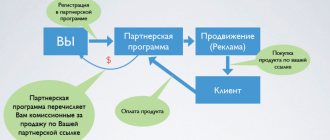"League of Housing and Public Utilities"
What they do:
help residents reduce utility costs and repair entrances
Where and when appeared:
in Yekaterinburg in 2012.
How they work:
Local media call “League” a “management company for hipsters”: the housing company was originally conceived as an IT startup. Now “League” helps solve the three main problems of residents: control where the management company spends money, call a repairman without having to call the control room all day, and choose the design of the entrance for repairs from the inside and outside.
A separate bank account is opened for each home that the company services. Data on where the management company spent the funds after paying the bills is sent to the website. A resident of the house can also use a special mobile application and a “personal account” on the company’s website: through it you can pay bills, leave an online request to call a specialist and evaluate the work of the management company.
In addition, the League has another special website - “Entrance Designer”. Here is a photo of an old entrance that can be upgraded in different ways: replacing the doors and ramp, installing railings and a flower bed, etc. You can also choose what color to paint the walls inside. When choosing, the cost of each job and all repairs is indicated.
What we achieved:
Liga currently serves 27 homes. So far this is not much - if we consider that there are 30 million square meters of housing in Yekaterinburg, then the League’s share of the market is less than one percent. Another 239 houses want to invite the company to their place - not only from Yekaterinburg, but also from other cities.
The company's work is complicated by constant threats and attacks. The first League office was burned, smoke and noise grenades were thrown into the second, and the windows of the third were shot twice. In October 2020, one of the employees had his head smashed on tram rails - after which he quit; another employee left after shooting at an office window a month later. League development director Ilya Sotonin blames other management companies operating in the city since the 1990s for this. One of them, Ardo Management Company, accused Sotonin of libel. In February 2020, she sued the entrepreneur to protect her business reputation.
Despite this, in November 2020, Liga got its first investor - it was reported that he invested 5 million rubles in the company for a 5% share in the business. As Sotonin clarified to Rusbase, this investor was the franchisee of Dodo Pizza in Surgut, Alexander Bogomolov; Now he has moved to Yekaterinburg and is helping Liga find new clients in Surgut.
Bogomolov confirmed this information: according to him, at the first stage, “League” will connect 4 houses with a total area of 40 thousand sq.m. in Surgut. The company plans to accept applications from other cities. The League is also thinking about launching an ICO, but is still waiting for the adoption of a law on the regulation of cryptocurrencies. The Ministry of Finance presented the draft of this law in January 2018.
"Eldis"
What they do:
help to deal with common house meters
Where and when appeared:
in the city of Staraya Russa, Novgorod region in 2012; The company's office is registered in St. Petersburg.
How they work:
The service helps to timely check the operation of public meters. The meters are connected to the system, after which the data is automatically entered into the program, then it generates monthly reports on the consumption of housing and communal services and heat loss of the building.
used by heating companies and other resource supply organizations (80% of clients), service companies, as well as management companies (5-7%) - mostly private. According to the company, they manage to save 7.5-10% of costs by putting things in order and monitoring metering devices.
The Eldis symbol is an octopus; the company recently came up with special stickers for Telegram with it.
What we achieved:
Now Eldis operates in 68 regions of the Russian Federation, 3,800 organizations use the service. The company twice managed to attract investments from the Internet Initiatives Development Fund (IIDF): in 2014 - 1.4 million rubles, in 2020 - another 15. Last fall, the government of the Novgorod region launched a pilot project with the participation of Eldis. According to Vlasov, the first stage of this project has already been completed: 200 educational institutions in the region have been connected to the system.
Starting in April, the company will begin testing apartment accounting technologies and studying how to reduce costs for general house needs in residential buildings. For this, Eldis is looking for management companies in Novgorod that will be ready to participate in this project. In addition to Russia, the company operates in Kazakhstan and Moldova, and there is “good interest” in the service from Ukraine. The company plans to attract new investors no earlier than the end of 2020.
Franchise "LUK"
The “LUK” franchise provides the opportunity to carry out entrepreneurial activities in the management of apartment buildings. The project is one of the most popular proposals in the series. The variety of proposal formats is associated with different possibilities for realizing business ambitions, terms of cooperation based on a contract, the amount of financial costs, and the payback period for investments made. The reliability of business technology determines the high level and timeliness of payments from Russian consumers in the housing and communal services sector.
"Housescanner"
What they do:
help conduct residents’ meetings: in person and online
Where and when appeared:
in Krasnoyarsk in 2020
How they work:
employees of the HOA, management company or the residents themselves leave a request on the website to connect to the service. Owners who do not have access to the Internet vote on regular paper sheets and hand them over to the building administrator. The administrator enters the completed forms into the system, and they also participate in the overall count.
After the voting is completed, the system automatically fills out all the necessary document forms, including the minutes of the general meeting of residents. The finished protocol with the counted votes is transferred to the GIS housing and communal services system. All this takes no more than five days.
The service also helps owners prepare a complete package of documents for holding meetings as usual. As a rule, this service is used by owners of non-residential premises who need a meeting decision to rebuild these premises for a new business.
What we achieved:
According to the service as of December 2020, 309 houses across Russia, from Moscow to Ussuriysk, joined online meetings. In two years, almost 250 online meetings were held using DomScanner. Now they receive about 30 applications every month: 65% are from the chairmen of building councils, HOAs and active owners, the rest are from management companies that need to hold a reporting and election meeting of the residents of the building. The service for preparing documents by lawyers for ordinary meetings of residents is, however, still in greater demand: since the launch, 6,430 meetings have been organized in this way.
Risk factors
- Low ROI . The business will pay off and make a profit, provided that residents do not systematically delay payment for services. You need to work with debtors according to a standard developed scheme. In extreme cases, the final result will be a court decision in your favor.
- High degree of bureaucratization. Compliance with all formalities is a prerequisite for successful work in the housing and communal services sector. If you lack your own knowledge, you can turn to lawyers for advice or hire a full-time employee.
- Low level of labor discipline. Unprofessional behavior of individual employees can lead to a decrease in the image of the enterprise. It is important to maintain strict discipline in the workforce and severely punish violations.
- Lack of necessary equipment. May force more work to be outsourced to contractors, thereby reducing profits. Plan investments in equipment in advance based on work plans for the coming year.
"Smart Resident"
What they do:
help pay for housing and communal services online and call electricians and plumbers without calling the control room
Where and when appeared:
in Moscow in 2020
How they work:
“Smart Resident” is a mobile application with which you can pay utility bills online, take meter readings, call a repairman for repairs, receive messages from your management organization and news about changes in the housing and communal services sector. The service charges a 2% commission for paying utility bills; other functions are free. In addition, in the application, a resident can find information about his house (year of construction, number of residential and non-residential premises, etc.), telephone numbers of emergency services, contacts of his management company and dispatch center.
What we achieved:
According to the service, 573 thousand apartments, 102 management companies and almost 10 thousand offices are now connected to it. Over the course of a year, the application was downloaded about 7,000 times, residents paid 4,000 bills and resolved more than 2,000 issues.
Market analysis
Currently, the country’s utility services market is developing in accordance with the “Strategy for the Development of Housing and Communal Services until 2020” adopted at the beginning of 2020. According to this document, Russia will have to implement an extensive program to improve the comfort of living conditions, modernize and increase the energy efficiency of housing and communal services, and use the most effective technologies for servicing the housing stock.
Until 2020, management companies will be subject to requirements for the introduction of economically sound business activities, improvement of the pricing mechanism when determining service tariffs in order to reduce them.
An important innovation is the possibility of obtaining loans for major repairs of buildings, which will be carried out by the management company.
At this time, the annual turnover in the housing and communal services sector is over 4.1 trillion rubles, which is equal to 5.7% of the country's GDP. At the same time, 55% of Russians believe that the amounts paid for services are not fair. It is planned that the annual increase in tariffs in the coming years should not exceed 4%.
Thus, this program creates transparent and favorable conditions for the development of private business in this area.
"Satellite"
What they do:
allows you to monitor your home and office using a smartphone
Where and when appeared:
in Moscow in 2020, the project was developed by Sputnik LLC.
How they work:
“Sputnik” is an IP intercom controlled via the Internet. It comes with a built-in IP video camera and a mobile application for video calls. The camera records on the server everything that happens in front of the entrance and takes close-up pictures of everyone entering. Through the application you can see, for example, who scratched the car, who entered the entrance and when. You can also connect additional cameras to it in the yard or inside the entrance.
Using the mobile application, you can also receive calls through the intercom: in this case, the owner of the apartment sees the face of the caller and can open the door for him directly from the phone. Those who do not have smartphones can receive calls as usual. At the entrance and exit of the entrance, the intercom announces important messages - about turning off hot water or blocked roads, and can warn that rain is expected. In the event of a fire, door-to-door notification is activated - then the intercom handsets switch to loudspeaker mode.
What I achieved:
The service is currently being tested in the city of Innopolis in the Republic of Tatarstan. In addition to Innopolis, “smart intercoms” are planned to be tested in Nizhny Novgorod, Dimitrovgrad and Samara.
"Nanoserv"
What they do:
allow you to keep warm in residential buildings and offices
Where and when they appeared:
in Krasnodar in 2012 (since 2014, Nanoserv has been promoting its products and services under its own brand - Bonaka).
How they work:
The founders of Nanoserv came up with a way to rid heating systems of scale that accumulates in the pipes of residential and industrial buildings. As it turns out, you can clean pipes and boilers from the inside using whey and bacteria. More than 30 organic acids are constantly generated in whey; If you add genetically modified bacteria and enzymes to it, this non-toxic solution will easily remove salt deposits and scale.
What we achieved:
According to the company itself, in six years since its creation, it has managed to clean more than 1,500 objects in Russia and other countries (the company has more than 60 dealers abroad - in the CIS, Europe and even India). In 2014, Nanoserv received a grant of 5 million rubles after winning the Generarion S competition and 1 million rubles from the Bortnik Foundation, in 2015 it won the Startup Tour and became a resident of Skolkovo, and in 2016 received a grant from Skolkovo in the amount of 5 million rubles for the development of new products and scientific research.
Franchise Online House
Franchise of the housing and communal services service "Online House", an exclusive business with monthly passive income from 700 thousand rubles
The group, which is actively developing innovative IT developments of the federal projects “Autoline”, “Online kindergarten” and “Online home”, invites you to become a partner and open your own automation company in the housing and communal services sector as part of the network
in Russia and the CIS countries under a franchise agreement.
We offer you to buy the Online House franchise, which includes the working concept of this business and the right to use our brand.
About the “Online House” network - a convenient single service of all housing and communal services in one application
The “Online House” service is a mobile application for residents of houses and management companies.
A revolutionary IT project in the housing and communal services sector. The cloud platform allows residents of apartment buildings and management companies to interact with each other through an application on mobile phones.
The “Online House” project allows residents to transmit meter readings and pay utility bills with one touch, call utility services and take part in voting by owners and members of the HOA online. A closed chat has been created on the platform for residents of the building, in which they can discuss pressing issues and inform the management company and the HOA about news.
Thanks to the “Online House” mobile application and video cameras installed in the yard, residents always see who comes into the house, who calls the intercom, children are supervised and cars are always under surveillance.
For management companies, there are advantages to using the service. Notifications and news are sent free of charge through the app without printing costs. The application allows you to quickly organize the work of a dispatch service to quickly process calls and requests from residents.
There are 3 areas of activity
allowing franchisees to earn:
- Subscription fee for management companies using the service (allows you to earn from 5 thousand rubles per month from each management company);
- Subscription fee from residents for viewing video footage via a mobile application (you earn from 100 rubles from each apartment);
- Sale of advertising of city goods and services in the service (you earn 3 rubles from each advertising letter that you send to residents through the service).
Support for opening a housing and communal services service under the “Online Home” franchise
For the successful start and development of your business, we will provide you with:
- Right to use the brand;
- Training partners from scratch with subsequent support at all stages of work;
- Assistance from a personal manager from the account department on any issues, both for beginners and experienced franchisees, throughout the entire period of joint activity.
Advantages of working as a franchisee of the Online House service
- Exclusive right: in one city there is only one franchise owner;
- Constant passive income after a one-time connection of the management company to the service;
- A unique franchise in the housing and communal services sector, without analogues or competitors;
- Easy and understandable business model;
- Managing your business from anywhere in the world with Internet access;
- 100% refund of the cost of the franchise under the contract, if your business does not work within 6 months
, i.e. You were unable to connect any home to the service; - The ability to engage in another type of activity or main job in parallel.
Reviews from existing franchise partners about the “Online House” housing and communal services service franchise
Partner reviews will appear here soon
Requirements for opening a housing and communal services service under the Online House franchise
- Investment capital;
- Willingness to follow uniform network rules.
Request detailed information from an employee of the Online House network using the contact form below.
"Omniscient"
What they do: helps management companies and utility providers calculate fees for housing and communal services according to the law
Where and when it appeared: in Moscow in 2010.
How they work: “Vseveda” is like 1C, only for housing and communal services and in the “cloud,” says company founder Arsen Mirzayan. The service is used by accountants of management companies and resource supply organizations. Through the program, they issue certificates, make recalculations, upload information to the Housing Information System and prepare receipts. At the same time, the program developers monitor changes in laws and make appropriate adjustments to the calculation formulas.
The most errors in utility bills are when calculating charges for general household needs.
“For example, the charge for elevator maintenance was 50 rubles per resident. And according to Resolution No. 491, the tariff should be calculated per square meter, and not per person,” explained Mirzayan.
If the payment for general house needs is calculated incorrectly, according to the law, the management company must reduce the amount of payment next month. “One management company asked us in this case not to make a negative accrual, but a zero one, because they “spent a lot last year and now want to get their money back,” Mirzayan said. Vseveda was refused. The service does not work with “conscious thieves” - however, they do not turn to it often: “according to our contacts, there are up to 5% of them,” the founder indicated.
What we achieved: In 2014, the service managed to attract $45,000 from the IIDF, and in 2020, a grant from the Fund for Assistance to the Development of Small Innovative Enterprises in the Scientific and Technical Sphere in the amount of $18,000. “We came to the IIDF with three clients, now we have them about 70,” Mirzayan clarified to Rusbase. Despite this, as Mirzayan himself believes, by the standards of venture capital investment the service cannot be called successful; rather, it belongs to the “zombie” category.
“We now have a monthly income of just over 300 thousand rubles, and we are growing in all key indicators by about 2 times a year. This is very little for a successful project from a venture point of view,” he explained.
Currently Vseveda works with clients from 34 regions. The company has enough funds for fixed expenses and gradual expansion, so it is not looking for investors. According to Mirzayan, the service now needs more “technological partners” - the opportunity to go under the wing of a larger player in the market that does not have such a technological solution.
RosZhKH
What they do:
help to complain about public utilities online
Where and when appeared:
The RosZhKH website became one of the first projects of Alexei Navalny’s Anti-Corruption Foundation. It was launched in November 2012, following RosPil, RosYama and RosVybory.
How they work:
Weak water pressure in the bathroom, broken light bulbs in the entrance, uncleaned snow and ice in front of the house - you can complain about these and other problems by filling out an online application on the website. After sending, the RosZhKH team itself sends out applications to officials: according to the law, they have no more than 30 days to respond (1-2 weeks must be added to this period due to the fact that the documents must be delivered by mail).
They complain about the same thing every year. According to Fedor Gorozhanko, coordinator of RosZHKH, the most popular complaints are cold radiators, underheating of hot water, leaking roofs, holes in the courtyards and poor cleaning of the territory. In 2020, the most requests came from Moscow and the Moscow region, St. Petersburg, Bashkortostan, Nizhny Novgorod, Samara and Khabarovsk.
What we achieved:
Since March last year, 78,760 requests were sent to officials through the project website, a third of them - 23,705 problems, which users then marked as resolved (not all users report this, so the number of solved problems may be greater, Gorozhanko clarified). At the launch stage of the project, there were more complaints - in the first year and a half, according to the FBK report, 154 thousand complaints were received.
“In recent years, officials have been looking for loopholes so as not to accept or consider complaints,” says Gorozhanko. For example, in Pskov and St. Petersburg they accept requests from citizens only through forms on their websites. Other regions refer to Federal Law 294 and refuse to consider applications without registration in the Unified Information and Analytical System of Russia.
“In general, the wow effect of 2011-2013, when there was a boom in applications to government agencies, has passed,” believes the coordinator of RosZhKH.
According to him, officials “have learned to cope with the flow of requests and not respond to complaints if they want.” In addition, now in every region and in large cities the same portals created by the authorities have appeared. In the same St. Petersburg there is a portal “Our City”, made following the example of the Moscow one. In fact, however, it simply serves to give people a place to let off steam. The procedure for considering requests to it is not regulated by law (this is indicated on the portal’s website), they are collected as statistics - officials are not obliged to respond to them, he clarified.











